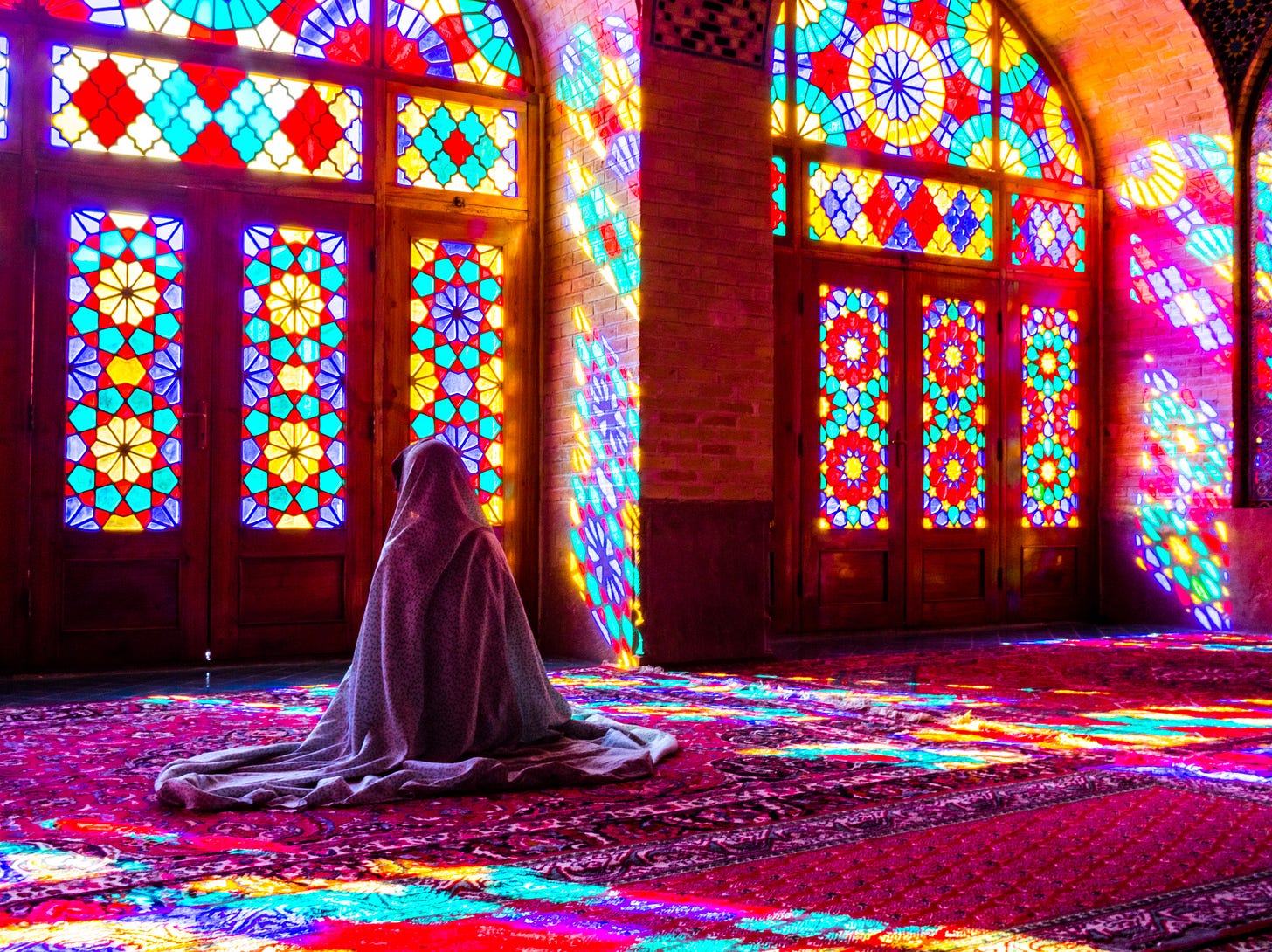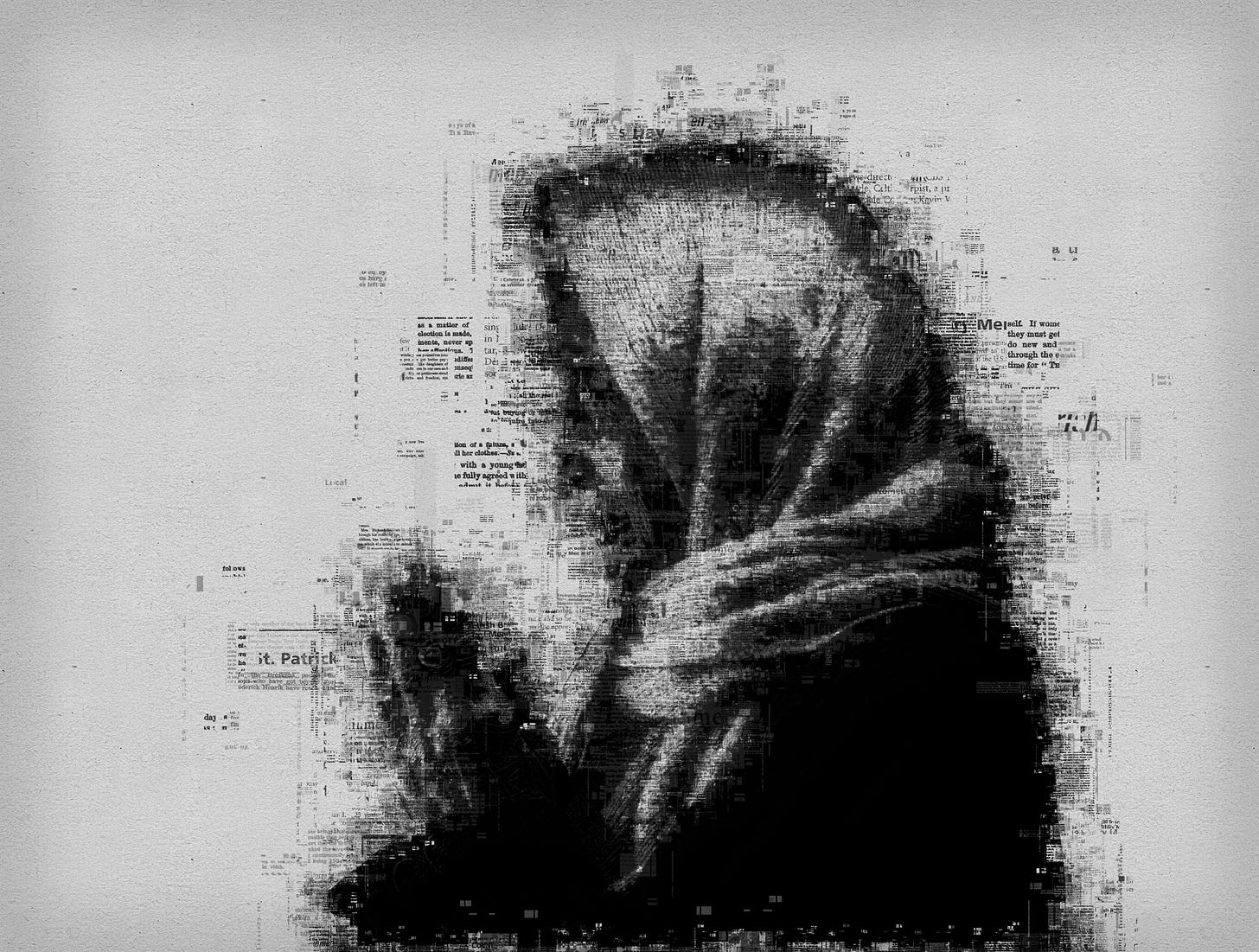What makes an experience “mystical?"
On developing a profound sense of contact with reality.
Dr. Paul Marshall is an independent researcher who explores intersections between mysticism, philosophy, and science. You can learn more about his work here.
#1. What makes an experience “mystical”? How would you define mystical experience?
One way to approach the question is to list typical characteristics of mystical experience. These include an overwhelming impression that reality has been encountered, a sense of unity, wholeness, connection, or presence, a profound, intuitive way of knowing, heightened awareness, challenges to the usual sense of self, inclusive love, special luminosity, altered time experience, peace, and bliss. It can feel as if one is now truly alive and awake. There are other characteristics too, but the ones I’ve listed give a sense of the experiences.
There is, however, some variation across the experiences, and rarely do they exhibit the full range of characteristics. One report might describe, say, just light and love, while another mentions wholeness, reduction in self-concern and fear, a sense of coming home, and insight into the meaning of suffering. Moreover, it’s possible to distinguish different types of mystical experiences. Given this diversity, is it possible to formulate a definition that gets to the heart of mystical experience and is applicable to the different types?
There’s no agreement here, but some scholars have located the kernel of mystical experience in their reality-disclosing quality, or in the sense of unity, or in the profound knowing, or some combination of the three. If the first of these is privileged, then one could define mystical experience as experience that brings a profound sense of contact with reality. Mystical experience discloses reality or at least gives the impression of doing so. Not every mystical experience may do so but considered, in general, they do.
What reality is mystical experience felt to disclose? In some cases, it’s the everyday world of objects, plants, animals, and people, even the universe as a whole, now known in greater depth and clarity and as inseparable from oneself. Or the reality might be some other world, say a spiritual realm considered to be distinct from our universe, or it might be a reality understood as truly ultimate, whether a personal God, ineffable absolute, or fundamental consciousness.
#2. Psychology is entirely based on subjective experience yet is taken seriously by everyone. Why is subjective mystical experience treated so differently?
There are several related reasons why mystical experience and its reality claims haven’t been taken as seriously as they could be, and these are reflective of the intellectual climate of our times. Although the experiences frequently take place in secular contexts, for example, amid the beauty of nature or at times of psychological distress, they have a long association with religious traditions and so may be dismissed without a second thought by those who reject anything to do with religion.
When the experiences are accepted as a subject of scientific study, as, for instance, in current neuroscientific research into psychedelics, there’s a strong tendency to focus on brain mechanism, which can give the impression that there’s nothing more to the experiences than neuropsychology. This kind of work, although valuable, can feel highly reductive, even if it’s not intended to be so. Furthermore, the possibility that mystical experience might give access to reality conflicts with the historically influential philosophical view that all knowledge is ultimately derived from sense experience. This narrow kind of empiricism has no place for the insights of mystical experience or the psychical cognitions studied by parapsychologists, such as telepathy and precognition.
In the academic study of religion, there’s another obstacle to taking the reality claims of mystical experience seriously. In the past few decades, there has been an influential view that mystical experiences do not give access to reality because they are entirely products of religious and cultural conditioning. This position is taken further by postmodernist thinkers who challenge the very notions of experience and reality. My own view is that we shouldn’t be too quick to dismiss the reality claims of mystical experience. True, within a materialist worldview, those claims seem highly implausible, but materialism is now widely recognized as deeply problematic, and there are philosophical alternatives that do support the possibility of genuine mystical contact with reality (I have surveyed these alternatives in a chapter in Consciousness Unbound).
#3. Is there a scientific way to evaluate and/or confirm these experiences? Does it matter if we can’t?
Scientific study of mystical experience is certainly possible and has taken various forms. For instance, the construction of mystical experience questionnaires by psychologists of religion has made possible the quantitative study of the experiences. There’s also the neuroscientific study of mystical experience, which took off in the 1990s with advances in brain imaging techniques, first employing meditators as subjects and now increasingly focused on the effects of psychedelics.
But I guess you’re really asking whether scientific methods can establish whether mystical experiences do what they seem to do, which is to provide genuine windows on reality. It’s difficult to see how the genuineness of mystical experiences can be tested scientifically, unlike psychical cognitions, which have very specific claims that can be investigated under controlled conditions.
However, there does seem to be a connection between mystical and psychical phenomena, as I’ve noted in some of my publications. Given this connection, it is possible that experimental support for the psychical provides indirect support for the mystical. Another approach is to consider whether insights of mystics into the natural world are confirmed by the findings of modern physics. There are some intriguing points of contact, notably in regard to mystically intuited holistic interconnections and the coexistence of all times in an eternal now, but this line of research needs to be approached with care if weak parallels are to be avoided.
Does it matter if investigation cannot establish whether the experiences are genuinely revelatory? Probably not to most mystics, for whom the experiences are completely persuasive. And we shouldn’t expect too much certainty from science, which rarely reaches a final, definitive position on fundamental issues. Rather, we can more realistically hope that careful investigation leads to a best explanation in the light of the available evidence, an explanation that may have a place for genuine contact with reality.
#4. Why is it that the features of most altered states of consciousness, as diverse as psychedelics, near-death experiences, mystical experiences (and even nature and art), seem to produce the same set of emotions: love, oneness, peace, etc.?
It is true that very similar mystical experiences can arise in a wide variety of circumstances, including the beauty of nature, the stimulus of art, poetry, music, and dance, psychological distress, near-death crisis, childbirth, sleep, meditation, prayer, compassion, sex, organic disorders, and psychedelics. Quite a motley bunch!
At the beginning of the 1960s, philosopher of mysticism Walter Stace argued that if two mystical experiences arise in very different circumstances yet have identical characteristics, then they should be regarded as the same kind of experience. He called this “the principle of causal indifference.” Stace raised this principle because, at the time (and subsequently too), it was debated whether psychedelic mystical experiences are genuine mystical experiences.
One possible explanation as to why experiences can be so similar in very different circumstances is that they do give access to an objective reality, one that is the same for everyone. Love, unity, light, knowing recur across experiences because they are intrinsic to the deeper nature of reality. Alternatively, it might be conjectured that the very different circumstances have the same effect on brain functioning and therefore result in the same kind of experience. Even if that were the case, it doesn’t follow that the brain manufactures those experiences. It may just be that the altered brain functioning facilitates or permits the experiences by allowing access to normally hidden depths of reality.
#5. Your book is called “The Shape of the Soul” and demonstrates the high number of instances (across various cultures) where spiritual entities are described as appearing circular. Why is this, and how can a non-physical entity have a shape? Could this also be why people believe they see “flying saucers?”
Circular and spherical patterns often manifest along with other so-called form constants in the early stages of altered states of consciousness, including hypnagogia and meditative states. These patterns could merely indicate something about structures in the brain’s visual processing system. However, I don’t think this is the entire story. Spherical forms sometimes manifest in mystical experiences and can be recognized there not as mere patterns but as intelligent, conscious beings.
In The Shape of the Soul, I draw on my own experience of this phenomenon to explore its possible meaning. It’s certainly plausible that UFO phenomena (and photographic orb phenomena, too) exert a fascination partly because they tap into a deep level of the psyche. Jung thought so and noted the use of geometric and often circular diagrams or mandalas in contemplative practices. These diagrams can stimulate mystical experiences, and indeed UFO experiences can have characteristics reminiscent of altered states of consciousness, including luminosities and transformed time experience.
You ask how a non-physical entity can have a shape. The religious and mystical literature is replete with visions of spiritual beings with size and shape. I would question the assumption that spiritual or mental things invariably lack physical properties such as extension. In modern times, this assumption is inherited from the Cartesian dualism of unextended mind and extended matter, and look how problematic that turned out to be.
If you examine your mental life, waking, imagining, dreaming, you’ll find that extension and shape are there, most obviously in patches of color. It’s a basic error to deprive all mental contents of extensional quality, and it’s led to confusion in the philosophy of mind. But you ask a good question because it makes one consider what “physical” might actually mean. I chose the title The Shape of the Soul with the intention of being a little provocative, not only because “soul” language can be uncomfortable for many these days but also because the attribution of shape to soul or mind can seem strange to modern ears as if a category mistake were being made.
#6. You write that “Dying is understood in its psychological essence as a letting go from moment to moment of the thoughts and concerns that obstruct awareness of the mind’s inherent wisdom, love and inclusivity.” Is this what it means to “kill yourself in order to live? (metaphorically)” How is this best accomplished?
I don’t know this “killing yourself to live” phrase, but it could have that meaning. I prefer the gentler words of Zen Buddhist Dōgen, who wrote: “To study the self is to forget the self; to forget the self is to be actualized by the myriad things. When actualized by the myriad things, your body and mind, as well as the bodies and minds of others, drop away.” Let’s forget ourselves, not kill ourselves.
It’s true that many circumstances conducive towards mystical experience seem to work by stilling the whirl of ego-centered thinking and feeling that commonly occupies our minds, thereby opening the way to hidden depths of experience. This doesn’t mean that one should attempt to eliminate the self. It doesn’t sound like a very good idea or indeed possible to do.
A more sensible approach would be to cultivate the self in such a way that it becomes more open, loving, compassionate, wise, less wrapped up in itself, and so capable of receiving, enduring, and integrating the lessons of mystical experience, should they come along. And there is evidence in near-death experience that those lessons may come along when we approach actual bodily death.
#7. Why is mystical experience so easy for some (sudden onset) while others may spend lifetimes trying to reach it?
That’s a difficult question to answer. One would have to look at the life histories of individuals to see if there were factors at work that possibly made mystical experiences more likely to occur or which even positively invited them. For example, in childhood, there may have been a closeness to nature, a delight and wonder that was subsequently lost, often in adolescence. Something then felt missing, inducing unconscious or half-conscious yearning that was difficult to satisfy but was eventually answered in mystical experience.
I give some examples in The Shape of the Soul. There may also be inborn or ingrained character traits that make one more susceptible to the experiences. There has been some research along these lines. For example, traits such as transliminality, thin boundaries, and absorption have been identified as predisposing factors for both mystical and psychical experiences. I won’t go into the technicalities, but absorption, for example, involves a character disposition towards focused attention.
#8. Plotinus believed that the nature of reality is that of “parts that are the whole.” This sounds reminiscent of the Kabbalistic idea of interinclusion or the notion of entanglement in Quantum Physics. What are some of the practical ramifications of this principle? What are the implications?
Plotinus spoke from personal experience: he had encountered parts that are complete wholes at the level of reality he called the Nous or Intellect. Plotinian ideas and Neoplatonism, in general, exerted considerable influence on Jewish, Christian, and Muslim mystical philosophies, and traces of the Plotinian vision of whole parts can be seen there.
Parts that reflect the entire whole are also a feature of the visionary Mahayana Buddhist work commonly known as the Avatamsaka Sutra, dating from roughly the same era as Plotinus, in the early centuries CE, and the idea was developed philosophically in the Huayan school of Chinese Buddhism. Connections have been made between mystical whole parts and quantum holism, but again the subject should be approached carefully.
I myself have been inspired to speculate on the matter, initially in my first book, The Living Mirror, bringing together aspects of Plotinian mystical philosophy and the idealist metaphysics of the German philosopher Gottfried Wilhelm Leibniz. Some scholars have suggested that Leibniz himself was influenced by mystical philosophies, including Neoplatonism and the Lurianic Kabbalah. What are the implications? Well, it could mean that at least some insights of mystics can be confirmed by physics.
#9. What is the ultimate goal of your research? What would you most like people to know?
I don’t have a master plan. But I do hope that my research into mystical experience and my mystically informed speculative philosophizing about the nature of reality will help advance the fields of mystical studies and mind–body metaphysics. They might even shed some light on fundamental physics. What would I most like people to know? If they don’t already know it, they may be surprised to hear that there is something truly astonishing about themselves, an often unsuspected dimension that has significant implications for what’s important in life. Mystical experience reveals that dimension.








I love the blending of mysticism and scientific inquiry in this essay. Looking into the interconnected fractals of the experience, one does note that everything is indeed entangled. I recall minding my best friend's apartment. I had slept on the couch next to a window. In the middle of the night, I awakened and gazed out of the window and felt an overwhelming sense of love and unity envelop me. I had no idea where it came from but it was profound and I never questioned it. Also concerts could induce me to feel this oneness with everything and everybody (no drugs involved). For me, the mystical is every bit as real as anything else in life. Whether or not scientists can figure it out is not important to me. I don't need any more proof than my own experiences. But I do appreciate that some scientists are curious about it. Thank you.